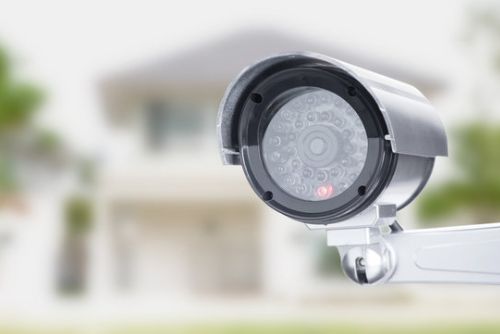What Is A Short Term Vacation Rental
Want a unique vacation? Short-term rentals may be ideal. This type of rental offers all the comforts of home without long-term commitments. Short-term vacation rentals—what are they?
Short-term vacation rentals can be rented for 30 days or less. Airbnb and HomeAway offer these rentals to travelers worldwide. They allow guests to check in and out at their convenience, making them more flexible than hotels. Many have private kitchens, living rooms, and outdoor spaces, making vacationers feel at home.
Short-term vacation rentals are an affordable, comfortable alternative to hotels. You usually hire a these properties from a short term rental agency. We’ll discuss what makes these rentals special and how to maximize them on your next vacation in the following article. In this article, you will know more about what is a short term vacation rental.
Definition Of A Vacation Rental
Vacation rentals are short-term rentals. It can be a condo, house, or apartment with hotel-like amenities. Travelers prefer this type of rental for its convenience and affordability compared to hotels. Many hospitality investors buy properties designed for vacation rentals.
Vacation rentals are used by guests on vacation or staycations, while other rental properties are long-term investments. They’re perfect for families and groups of friends because they offer more privacy than hotels and have kitchenettes, living rooms, gardens, and pools.
Vacation rentals let renters enjoy the benefits of staying away from home without having to sign a full-time lease. This flexibility allows anyone to start a rental business and capitalize on the short-term stay trend. Thus, let’s examine the benefits of short-term rentals over longer leases.
Benefits Of Short-Term Rentals
Visitor, homeowner, and community benefits abound with short-term rentals. They offer flexible rental periods for weekend getaways or extended stays. Short-term rentals can also help homeowners earn more without selling their homes. This type of renting has also opened new tourism markets in areas that previously had strict rental regulations.
Airbnb, HomeAway, and FlipKey have made it easier than ever for budget-conscious travelers to find short-term accommodations with unique amenities. These services also allow homeowners to maximize occupancy rates by directly contacting potential guests without incurring management fees or long-term lease commissions.
Finally, affordable lodging creates jobs and revenue for local businesses worldwide. With all these benefits, short-term rentals are growing worldwide.
Common Types Of Rentals

Travelers seeking adventure can choose from many short-term vacation rentals. Here are the most common types of short-term rental properties:
- Vacation Homes: A vacation home is any type of residential property that can be rented out for short periods of time, usually no longer than 30 days. It usually also includes amenities such as a kitchen and laundry facilities.
- Serviced Apartments: This type of accommodation offers self-catering facilities in addition to other services like housekeeping and room service. They tend to be more expensive but provide convenience and comfort.
- Hostels: These low-cost accommodations often have shared rooms with basic amenities such as beds, showers, and toilets. Some hostels may also include extras like breakfast or WiFi access.
Every traveler has a short-term rental option. These rentals suit all budgets and tastes. Finding the right property is easier than ever with so many options. We can then discuss local short-term rental regulations that may impact your decision.
Local Regulations
After discussing common rental arrangements, let’s discuss local regulations. Depending on where you live, many factors can affect your short-term vacation rental. These include residential noise ordinances and guest stay limits. Property owners must obtain a special license to rent their space as a short-term vacation rental in some jurisdictions.
Local safety standards must also be met before short-term rentals are approved. This includes installing security systems, fire extinguishers, and first aid kits in each unit and testing smoke and carbon monoxide detectors. Landlords should also make sure their furniture meets local flammability codes.
Researching and understanding local regulations will make becoming a successful landlord easier and less stressful. So, it would be important to understand the regulations specifically for where your property is. If you have one in Miami, you should understand how to manage the regulations with that property. Understanding your landlord’s responsibilities will help you avoid legal issues when renting your property as a short-term vacation rental. With this knowledge, our next topic covers the tax implications of operating such rentals—keep reading.
Tax Implications

Taxes must be considered when renting out your home short-term. First, online or offline, rental income must be reported in accordance with local laws. Always consult a tax accountant.
Second, rental applications require certain forms. Before renting, landlords may need to show proof of insurance or property ownership. This is especially true with celebrity or executive tenants.
Finally, homeowners and renters should be aware of vacation rental taxes. Knowing this beforehand will prevent unpleasant surprises. Anyone renting out their home should succeed quickly and efficiently with careful planning and tax liability consideration. Common vacation rental amenities follow.
Common Amenities In Vacation Rentals
Short-term vacation rentals have many amenities. There are options for every style and budget, from homey rental units to modern investment properties. If you wan to know what is a short term vacation rental, there are common amenities that you could enjoy during your stay.
To enjoy your stay in a short-term vacation home, consider what amenities you need. Linens and kitchenware may be provided, depending on your stay. Request internet or cable TV if needed. Check for pet-friendly accommodations and pet fees.
Researching rental properties is essential. Knowing what amenities are available will help narrow down potential locations and meet your expectations while away from home. This way, you won’t be disappointed by a lack of essentials.
With this knowledge, you can find the perfect place for a memorable experience.
How To Find A Suitable Rental Property

Finding the right short-term vacation rental can be difficult. Starting is important, so here are some tips for finding your ideal vacation home:
- Research rental properties online. Compare sites and read guest reviews. Contact the owners or managers for property information.
- Fill out a rental application with all the required documentation after narrowing down your list of properties. Provide references and income proof.
- After the owner or manager approves you, you can book and pay.
Note that in some cases, property owners/managers may require a security deposit prior to renting their property.
Booking And Payment Procedures
After finding a short-term rental, book and pay. Properties usually require a deposit and identification like a passport or driver’s license. To avoid hidden fees, read the terms and conditions before signing the rental agreement.
Rentals may include housekeeping, personal grocery delivery, and airport transfers. If this isn’t in your quote, ask about it during the booking process so you can use it if needed. Credit cards and wire transfers are accepted, but confirm payment details before booking.
Before leaving, familiarize yourself with the cancellation policies and procedures for your stay to ensure a smooth transition if something unexpected happens. After addressing these issues, we can discuss vacation rental security and safety.
Security And Safety Concerns

Short-term vacation rentals must be secure. Rental management that protects renters and owners is essential. Many property management companies ensure safety throughout the process. They strictly verify renter identities, inspect properties before and after each stay, provide emergency contact information, and monitor suspicious activity on their STR (short-term rental) properties. Thus, renters and property managers can rest assured that all precautions were taken throughout the rental process.
Rental management companies offer helpful resources like blogs on online rental safety. These blogs cover topics like how to verify prospective tenants’ IDs, what property insurance to get, how to keep track of who is staying in your rental unit, etc. Homeowners can protect themselves and their guests by reading these guidelines.
There are many ways to avoid risks with short-term vacation rentals, but everyone—from homeowners to renters—must do their due diligence to ensure everything goes smoothly. Short-term rental managers can succeed with proper preparation and research.
Renter Responsibilities
Short-term vacation rental renters have many responsibilities. To attract guests, you must manage your rental units properly and keep them up to code. Renters should know their responsibilities.
- Ensure that all necessary paperwork is filled out accurately before signing any contracts
- Follow local laws and regulations related to renting out property
- Research safety requirements for each unit and inspect regularly
- Maintain cleanliness standards throughout the entire process
Owners should also prepare for guests. Check smoke detectors, lock windows and doors, and install stove top ventilation systems. Owners must also check for faulty wires, electrical outlets, and other hazards. These precautions ensure everyone’s safety.
Preparing The Home For Guests

After finding the perfect rental property and fulfilling your renter duties, it’s time to prepare for guests. Preparing a home for short-term rental is essential for tenant satisfaction. You want them to feel like they got their money’s worth by renting your property.
Make sure the place looks nice and inviting when people arrive first. This includes dusting surfaces and vacuuming carpets if needed. Replace furniture and other items now. Don’t let guests arrive to find broken appliances.
To avoid renters having to buy towels, toilet paper, soap, shampoo, etc., you should stock the place. Consider adding extras like fresh flowers on the dining table or a snack basket at check-in. These small touches can make guests feel at home in your rental property.
After discussing how to prepare your home for guests, let’s discuss short-term rental insurance.
Insurance Considerations
Short-term vacation rentals need insurance. Understand the risks of renting out your home and make sure you’re covered in case of accidents or damage. Short-term rental insurance requirements vary by location. Most homeowners’ policies don’t cover guest damage or third-party liabilities from injuries at your rental.
Before buying short-term rental insurance, check if your existing policy covers liability and personal injury. Local zoning laws and other restrictions on running a business like this should also be checked. Preparing these details can prevent legal issues.
Renting your home requires financial protection. Doing so will give you peace of mind that you’re ready for anything during a guest’s stay at your short-term vacation rental. After considering all this, it’s time to find the best advertising platforms for your property.
Choosing The Right Advertising Platforms
After considering short-term vacation rental insurance, it’s time to market your property. With so many online advertising platforms, it can be hard to choose one. Fortunately, with a little research and patience, you can narrow down your options and choose the platform that will get your rental noticed by potential customers.
Consider your target renters when choosing an advertising tool. Are they romantic weekenders? Families wanting to visit nearby attractions Business travelers needing a place to stay while attending meetings or conferences Knowing who will book your rental will help you choose media outlets.
Keep up with industry trends when choosing where to market your property. Marketing on Instagram, Twitter, and Facebook has pros and cons. They can connect prospective guests if used properly. Airbnb and VRBO are popular vacation rental listings.
Make sure your rental promotion methods reflect well on you and the property. That way, potential renters will be excited rather than skeptical about staying at one of your vacation rental properties when they see your ad. Let’s examine some listing optimization tips.
Tips On Improving Your Listing

Short-term rental listings must stand out. You can enhance your listing to attract more guests.
Consider what makes your rental special. What distinguishes it? Highlight these features in your description to attract guests. Add high-quality photos of the interior and surrounding area to attract tenants.
Second, verify all the data. This includes checking pricing, availability, and local short-term rental regulations like occupancy limits and checkout taxes. Before booking, guests should know how to reach you with questions. Finally, offer discounts or gift cards to boost customer loyalty and encourage repeat bookings. That’s where a short term rental management team can come in handy.
These steps will help you get more bookings and maximize revenue from each one.
Maximizing Your Revenue
There are several ways to maximize short-term vacation rental revenue. Know your market’s short-term rental potential. Know your local short-term rental laws.
Second, highlight your property’s amenities, such as private pools or hot tubs, fitness centers, saunas, and other features that will draw guests to your area. To help prospective renters visualize the space, include room photos. To prepare visitors for their visit, describe nearby attractions and activities in detail.
Finally, set reasonable prices based on local demand and availability, but keep up with current trends to avoid losing customers. Include cleaning fees and late checkouts to boost profits.
Final Thoughts
Short-term vacation rentals are ideal for quick getaways. One-night to several-week stays are typical for these rentals. The rental property may limit guests and pets. Online or rental agency check-in and check-out are common. Long-term rentals often get discounts. With so many options, it’s no wonder so many people choose short-term vacation rentals over hotels when travelling. So now you got lots of insights about what is a short term vacation rental.
Frequently Asked Questions
What Is The Typical Length Of A Short-Term Vacation Rental?
Short-term vacation rentals are popular for escaping daily life. What’s the average rental length?
Vacation rentals can be short-term. Short-term leases last less than 30 days, while long-term rentals last 30 days or more. If you want something short, like a weekend or holiday, you don’t have to commit to a longer period. This type of accommodation is also cheaper than hotels because the cost is spread out over multiple nights instead of one lump sum.
It’s also a great way to travel without carrying suitcases. Choose accommodations with pools, hot tubs, fitness centers, and other fun activities. Many places are furnished, so you only need to bring clothes and toiletries.
Short-term vacation rentals are available for weekend getaways or extended stays. Finding the perfect spot has never been easier.
Are There Any Restrictions On The Number Of Guests Allowed In A Short-Term Rental?
Know the short-term rental rules when planning a vacation. One is your vacation rental’s guest limit.
As long as all residents are listed on the lease, most rentals allow unlimited guests. Occupancy and fire codes may limit some cities and regions. Before booking, always check with the local authorities. Thus, you can avoid unpleasant surprises at check-in.
Many short-term rental providers limit guest numbers for safety. Before booking, make sure the contract states that a large group will stay at the property. Understanding these limitations ahead of time will ensure everyone has a memorable experience without any issues.
What Is The Process For Checking-In And Checking-Out Of A Vacation Rental?
Vacation rentals have different check-in and check-out procedures. Arriving guests must show ID and pay. Before arriving, familiarize yourself with the rental’s rules. For a smooth check-in, do these:
- Ask ahead for details about the check-in procedure – such as what time is best to arrive and if there’s anything you need to bring along.
- Make sure your contact information is up-to-date so that the owner or manager can reach you easily with any updates or changes.
- Read through all relevant documents carefully – like house rules, policies, etc. – so that you understand them fully before agreeing to abide by them.
- Double-check that everything listed on the contract (including price) is correct prior to signing off on it.
Everyone must understand checkout. You may be asked to leave keys in an agreed-upon spot or return them to the owner or manager when leaving. You may need to fill out a guest feedback form to inform other potential guests and let owners know what they can improve. Before leaving, gather all your belongings and lock windows and doors. These steps ensure a successful check-in and checkout.
Are There Any Restrictions On Pets In A Vacation Rental?
Do vacation rentals allow pets? Booking a short vacation should include this question. If you don’t make sure your pets are welcome, you may get some surprises, depending on the property and owner.
Every vacation rental company has pet policies. Before booking or signing, read all the terms and conditions. Some providers allow certain dog breeds but not cats. Animal size limits and fees for bringing them should also be considered.
Do your research ahead of time and check with the provider about their pet policy, as there are many factors that affect what pets can travel with you. This will ensure everyone knows what’s expected from both parties during the trip, leaving more time for fun.
Are There Any Discounts Available For Long-Term Stays?
Planning a long vacation? If so, consider long-term-stay discounts. This could save you a lot of money and improve your stay.
When planning a longer trip, check for discounts. Multiple-week bookings often get discounts or free breakfast. Before buying, compare prices and properties.
Long-term rental websites and travel agents offer additional discounts. They get better deals from property owners because they have exclusive offers. If you’re unfamiliar with the destination, they’ll also offer local advice.
Long-term stays may offer great discounts, whether you’re going to Fort Lauderdale for a month or staying closer to home. Take advantage of them and reap the rewards of smart travel. Negotiate with the rental managers because they can help you snap up a deal which will be a win for you and the owner.











